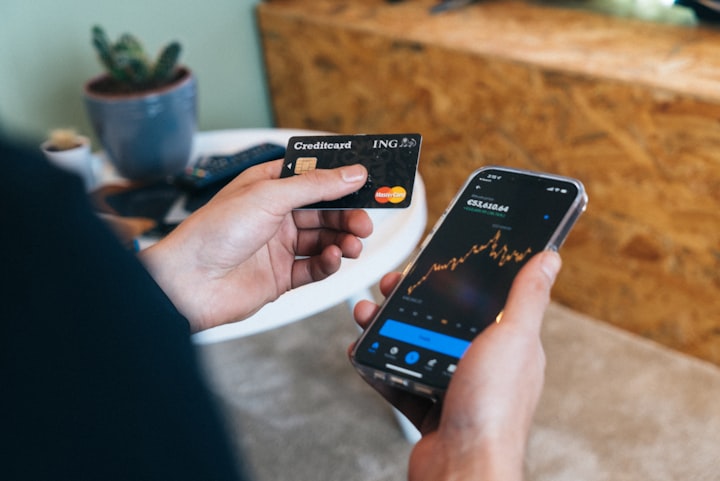Safeguarding Online Payment Security: 7 Essential Measures for Merchants
If you're doing business online, make sure that security is paramount! We show you 7 essential measures that you can take to ensure online payment security.

Online payments are an integral part of conducting business. Thus, as a merchant, it is crucial for you to prioritize the payment security of your customers' online transactions.
According to PwC research in 2022, 51% of organizations surveyed said that they experienced fraud in the past two years, including fraudulent transfers to or from a platform.
Taking appropriate online payment security measures not only protects your customers from potential fraud and theft, but it also safeguards your reputation and builds trust. In this article, we will explore seven essential measures that you as a merchant can take to ensure online payment security.
Use a secure payment gateway
Selecting a reliable and secure payment gateway is the foundation of online payment security. A payment gateway acts as the intermediary between your online store and the financial institutions involved in the transaction.
Ensure that the payment gateway you choose complies with the Payment Card Industry Data Security Standard (PCI DSS). The PCI DSS ensures that sensitive customer data, such as credit card information, is stored and transmitted securely. Virtually all entities that handle credit card data in Malaysia follow the PCI DSS standard.
Implement SSL encryption
Secure Sockets Layer (SSL) encryption is a vital security measure that encrypts data transmitted between your website and your customers' browsers. It provides a secure channel for sensitive information, protecting it from interception by unauthorized parties. Obtain an SSL certificate and enable HTTPS on your website to establish a secure connection. Display trust indicators, such as the padlock icon and a trust seal, to assure customers that their data is protected.
Encrypt customer data
Storing customer data in plaintext is one of the biggest mistakes companies make. You will need to encrypt this data, and this is done through tokenization.
Tokenization is the process of replacing sensitive customer data, such as credit card numbers, with unique identification symbols or tokens. By implementing tokenization, you minimize the risk of storing sensitive information, as tokens are meaningless to attackers.
Additionally, consider encrypting all customer data stored on your machines (e.g. names, addresses etc), further enhancing its security. Encryption transforms data into an unreadable format, ensuring that even if the data is compromised, it remains inaccessible to unauthorized individuals.
Enforce strong password policies
Implement strict password policies for both your customers and your staff. Encourage customers to create strong, unique passwords by enforcing requirements such as a minimum length. The longer the password, the better, as passwords with up to 8 characters can be cracked in only an hour.
If possible, utilize two-factor authentication (2FA) to add an extra layer of security to account logins.
Regularly update and patch software
Outdated software and applications can have vulnerabilities that hackers can exploit. Ensure that your website's content management system (CMS), payment gateway, and other software are regularly updated with the latest security patches and bug fixes.
If your payment gateway is running on a no-code platform, your service provider will be aware of all the requirements to update and implement security fixes.
Monitor and analyze transaction data
Implement robust transaction monitoring and analysis tools to detect and prevent fraudulent activities. Identify patterns and anomalies in customer transactions, such as sudden spikes in purchase amounts, multiple failed login attempts, or unusually high volume purchases. Set up real-time alerts to notify you of any suspicious activities, enabling you to take immediate action to mitigate risks.
Educate customers about security
Provide your customers with resources and information about online payment security. Create a comprehensive FAQ section on your website addressing common security concerns. Offer tips on creating strong passwords, spotting phishing emails, and using secure payment methods. Regularly communicate with your customers through newsletters or blog posts, emphasizing the importance of online security and sharing best practices.
Safeguard your payment security with Tekkis
Ensuring online payment security is a critical responsibility for merchants in the digital age. By implementing the measures outlined above, you can create a secure environment for your customers and protect your business from potential fraud and reputational damage.
With Tekkis, we take proactive security measures that not only enhance customer trust but also contribute to the long-term success and growth of your business in the online marketplace.
Plus, Tekkis t-Pay is also:
- Easy to set up with no coding or programming knowledge required.
- Free to use with no subscription or hidden fees. You only pay when you make a sale.
- Practical and usable, supporting a range of payment methods including credit card, bank transfer via FPX, as well as e-wallets.
- Secure and reliable with friendly 24/7 customer support.
Ensure your payments are secure with Tekkis today by getting in touch with us. Our friendly Customer Experience team is always ready to assist.
If you liked this article or want to discuss something we wrote about, do comment down below. Also, if you haven’t already, subscribe to our newsletter to stay updated about all things online payments and more!



